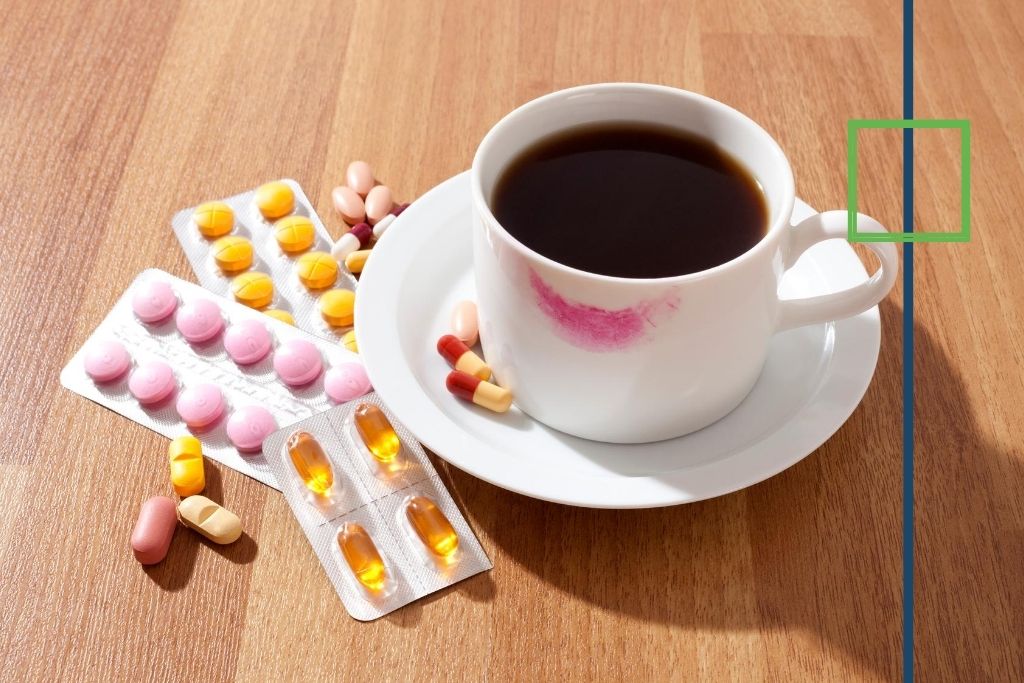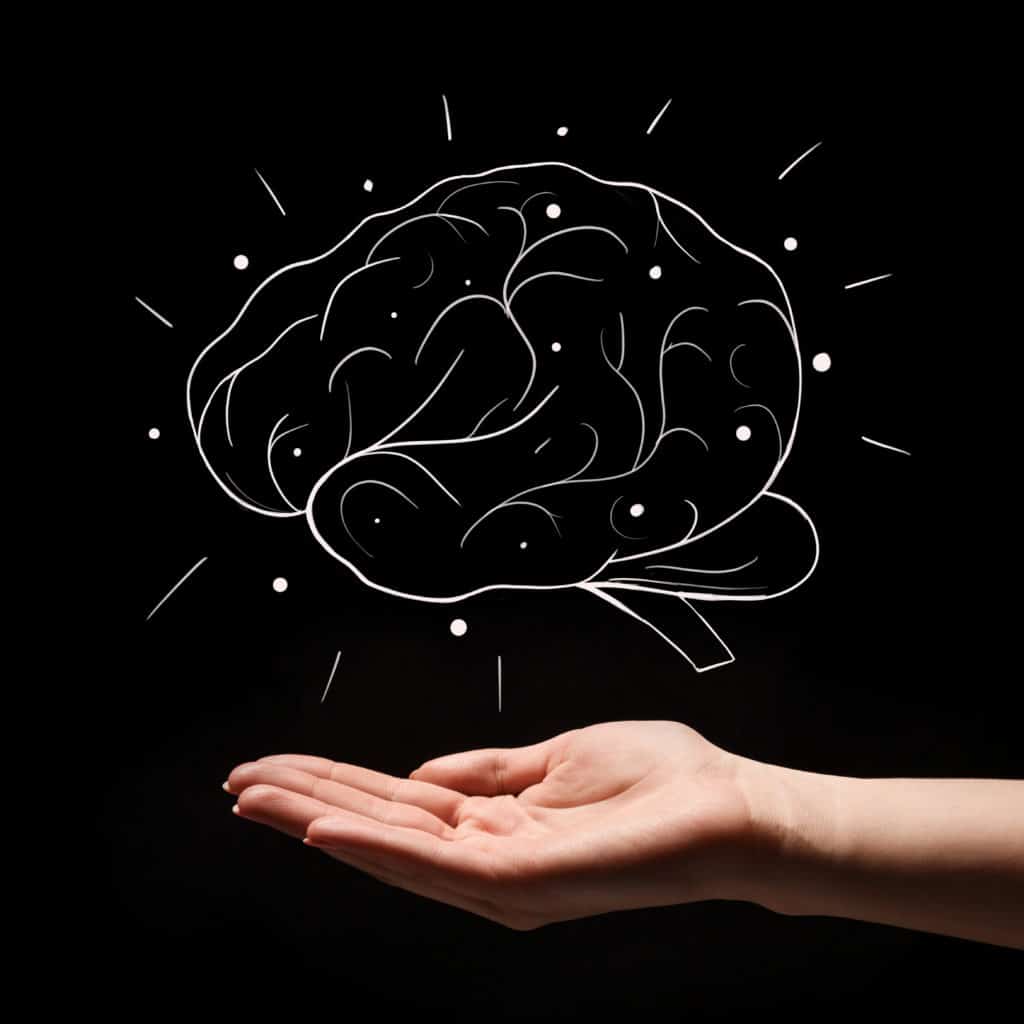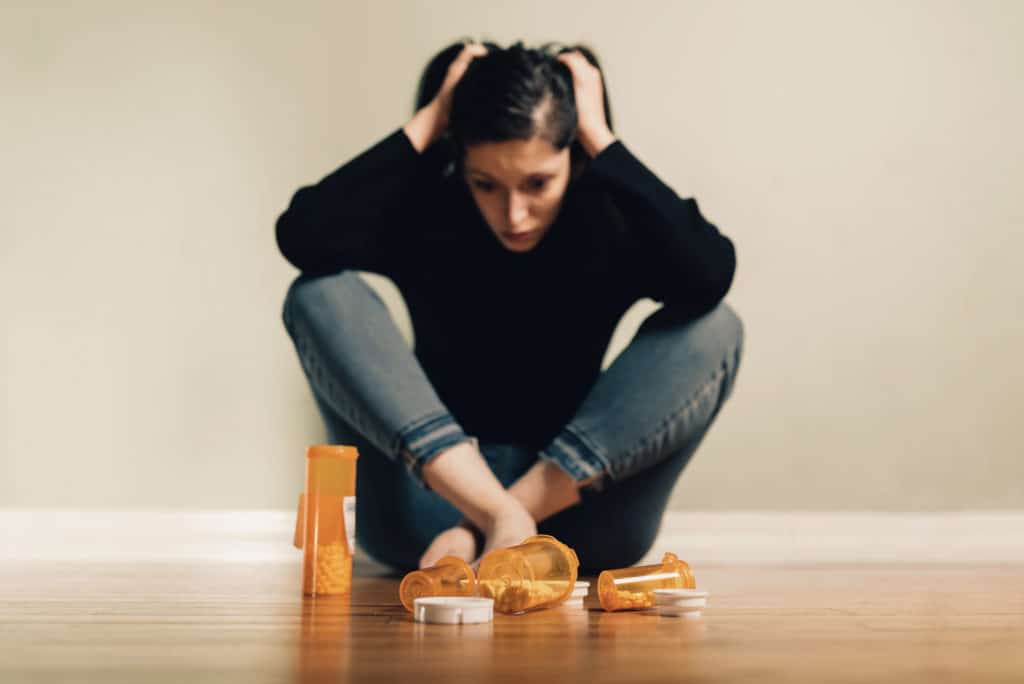What are CNS Depressant Drugs?
According to the National Institute on Drug Abuse, Central Nervous System (CNS) depressant drugs are medicines that include sedatives, tranquilizers, and hypnotics. These drugs can slow brain activity, making them useful for treating anxiety, panic, acute stress reactions, and sleep disorders.
CNS depressant drugs cause drowsiness; sedatives are often prescribed to treat sleep disorders like insomnia and hypnotics can induce sleep, whereas tranquilizers are prescribed to treat anxiety or to relieve muscle spasms. [1] Some examples of CNS depressants grouped by their respective drug class are:
- Benzodiazepines
- diazepam (Valium®)
- clonazepam (Klonopin®)
- alprazolam (Xanax®)
- triazolam (Halcion®)
- estazolam (Prosom®)
- Non-Benzodiazepine Sedative Hypnotics
- zolpidem (Ambien®)
- eszopiclone (Lunesta®)
- zaleplon (Sonata®)
- Barbiturates
- mephobarbital (Mebaral®)
- phenobarbital (Luminal®)
- pentobarbital sodium (Nembutal®)

How do people use and misuse prescription CNS depressant Drugs?
Most prescription CNS depressant drugs come in pill, capsule, or liquid form, which a person takes by mouth. Misuse of prescription CNS depressants means:
- Taking medicine in a way or dose other than prescribed
- Taking someone else’s medicine
- Taking medicine for the effect it causes — to get high
When misusing prescription CNS depressant drugs, a person can swallow the medicine in its normal form or can crush pills or open capsules.
How do CNS depressant drugs affect the brain?
Most CNS depressant drugs act on the brain by increasing the activity of gamma-aminobutyric acid (GABA), a chemical that inhibits brain activity. This action causes drowsy and calming effects that make the medicine effective for anxiety and sleep disorders. People who start taking CNS depressant drugs usually feel sleepy and uncoordinated for the first few days until the body adjusts to these side effects. Other effects from use and misuse can include:
- Slurred speech
- Poor concentration
- Confusion
- Headache
- Light-headedness
- Slowed breathing
- Dizziness
- Dry mouth
- Problems with movement and memory
- Lowered blood pressure
If a person takes CNS depressants long-term, they might need larger doses to achieve therapeutic effects. Continued use can also lead to dependence and withdrawal when use is abruptly reduced or stopped. Suddenly stopping can also lead to harmful consequences like seizures.

Effects of depressant drugs
Depressant drugs work in a number of ways, most commonly by increasing the production of gamma-aminobutyric acid (GABA). This increased brain chemical has the effect of slowing brain activity and producing a relaxation effect. In addition to this, there are often various side effects to depressant use.
Short-term effects of depressant drugs
- Slowed pulse and breathing
- Lowered blood pressure
- Dilated pupils
- Confusion or disorientation
- Difficulty concentrating
- Sleepiness or fatigue
- Difficulty urinating
- Dizziness
Long-term effects of depressant drugs
The effects of long-term use depend on the type of depressant and severity of use. In particular, abusers of depressants may develop a tolerance and require increasing doses to maintain the desired effects. Other potential long-term effects include:
- Chronic fatigue
- Weight gain
- Sexual dysfunction
- Breathing and sleep difficulties
- Depression
Signs of depressant drugs abuse
The first and foremost sign of abuse is taking depressants without medical direction, or outside the doctor’s prescribed guidelines. Examples include taking depressants recreationally, to escape your problems, or taking someone else’s prescription. Other warning signs include:
- Secretive behavior
- Mood swings
- Decreased social activity or work productivity
- Periods of depression or apathy
- Withdrawal symptoms when not using depressants
Excessive consumption of depressants can lead to overdose and death. These abuse risks can be dangerously compounded if depressants are mixed with alcohol, or used to offset the effects of stimulants.
CNS depressant drugs overdose
A person can overdose on CNS depressant drugs. An overdose occurs when the person uses enough of a drug to produce life-threatening symptoms or death. When people overdose on CNS depressant drugs, their breathing often slows or stops. This can decrease the amount of oxygen that reaches the brain, a condition called hypoxia. Hypoxia can have short- and long-term mental effects and effects on the nervous system, including coma and permanent brain damage.
CNS depressant drugs overdose treatment
The most important step to take is to call 911 so a person who has overdosed can receive immediate medical attention. Flumazenil (Romazicon®) is a medication that medical personnel can use to treat benzodiazepine overdose and has also been shown effective in treating overdose from sleep medicines.
The drug might not completely reverse slowed breathing and can lead to seizures in some patients who are taking certain antidepressants. Flumazenil is short-acting, and the patient may need more of it every 20 minutes until they recover. For barbiturates and nonbenzodiazepines, body temperature, pulse, breathing, and blood pressure should be monitored while waiting for the drug to be eliminated.
CNS depressant drugs: addiction and substance use disorder
Use or misuse of prescription CNS depressant drugs can lead to problem use, known as a substance use disorder (SUD), which takes the form of addiction in severe cases. Long-term use of prescription CNS depressant drugs, even as prescribed by a doctor, can cause some people to develop a tolerance, which means that they need higher and/or more frequent doses of the drug to get the desired effects.
A SUD develops when continued use of the drug leads to negative consequences such as health problems or failure to meet responsibilities at work, school, or home, but despite all that the drug use continues. Those who have become addicted to prescription CNS depressant drugs and stop using the drug abruptly may experience a withdrawal.

Withdrawal symptoms-which can begin as early as a few hours after the drug was last taken—include:
- Increased heart rate, blood pressure, and temperature with sweating
- Hallucinations
- Severe cravings
- Overactive reflexes
- Seizures
- Shakiness
- Anxiety
- Agitation
- Insomnia
People addicted to prescription CNS depressant drugs should not attempt to stop taking them on their own. Withdrawal symptoms from these drugs can be severe and—in the case of certain medications-potentially life-threatening.
Withdrawal symptoms of depressant drugs
Because of the way depressants affect brain chemistry, withdrawal symptoms can be sudden and severe. While a medical professional can best assess the risks and approach to ending depressant abuse, common symptoms include:
- Insomnia
- Nausea and vomiting
- Weakness
- Confusion or hallucinations
- Anxiety or panic attacks
- Body pains and tremors
- Seizures
Depressant Drugs Detox
Many depressant addicts will require an initial period of detox to allow the drugs to exit their system. During this stage, medically supervised management of the withdrawal process helps ensure a safe cleansing of the body. Detox activities may involve:
- Managing often severe withdrawal symptoms
- Medication to assist with cravings and physical discomfort
- A diet plan to support nutritional needs
- Medical monitoring
Depressant Drugs Treatment
There isn’t a lot of research on treating people for addiction to prescription CNS depressant drugs. However, people addicted to these medications should undergo medically supervised detoxification because the dosage they take should be tapered gradually.
Counseling, either in an outpatient or inpatient program, can help people through this process. One type of counseling, cognitive-behavioral therapy, focuses on modifying the person’s thinking, expectations, and behaviors while improving ways to cope with life’s stresses. Cognitive-behavioral therapy has helped people successfully adapt to stop using benzodiazepines.

Often prescription CNS depressant drugs misuse occurs along with the use of other drugs, such as alcohol or opioids. In those cases, the person should seek treatment that addresses the multiple addictions.
Reclaim your life from depressant drugs
Depressant drugs Addiction is a serious condition that can cause severe health, social and economic problems that should not be taken lightly. We Level Up Treatment Center can provide you, or someone you love, the tools to recover from this with professional and safe treatment. Feel free to call us to speak with one of our counselors. We can inform you about this condition by giving you relevant information. Our specialists know what you are going through. Please know that each call is private and confidential.
Sources
[1] National Institute on Drug Abuse (NIDA) – Prescription CNS Depressants DrugFacts (www.drugabuse.gov)